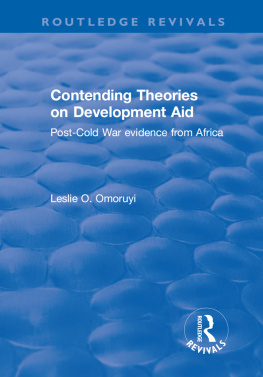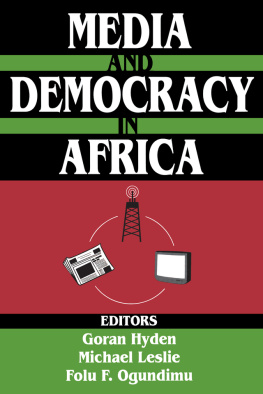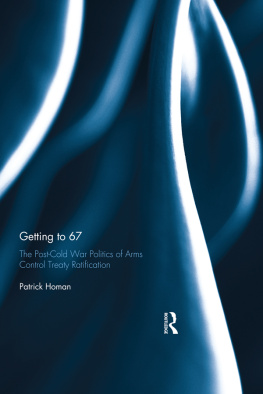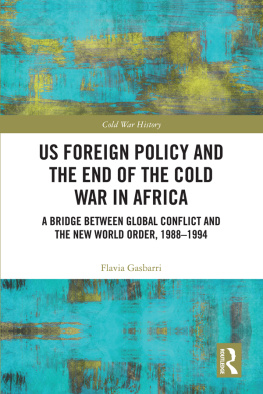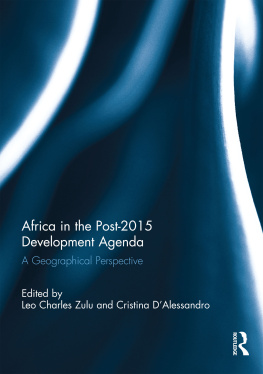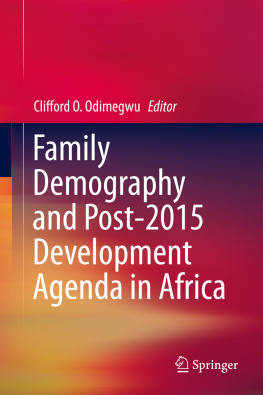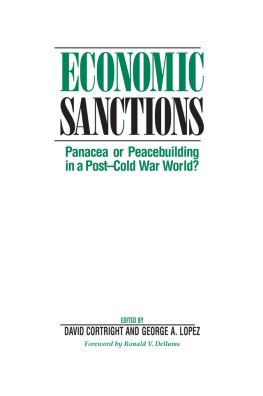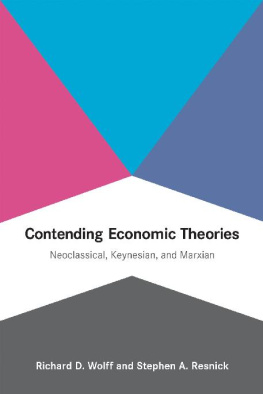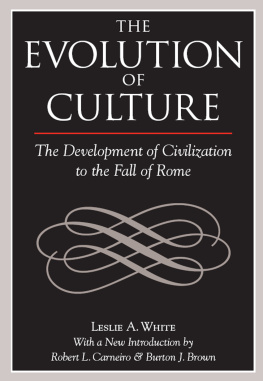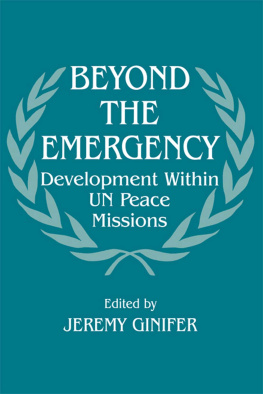First published 2001 by Ashgate Publishing
Reissued 2018 by Routledge
2 Park Square, Milton Park, Abingdon, Oxon OX14 4RN
711 Third Avenue, New York, NY 10017, USA
Routledge is an imprint of the Taylor & Francis Group, an informa business
Copyright Leslie O. Omoruyi 2001
The author has asserted his moral right under the Copyright, Designs and Patents Act, 1988, to be identified as the author of this work.
All rights reserved. No part of this book may be reprinted or reproduced or utilised in any form or by any electronic, mechanical, or other means, now known or hereafter invented, including photocopying and recording, or in any information storage or retrieval system, without permission in writing from the publishers.
Notice:
Product or corporate names may be trademarks or registered trademarks, and are used only for identification and explanation without intent to infringe.
Publishers Note
The publisher has gone to great lengths to ensure the quality of this reprint but points out that some imperfections in the original copies may be apparent.
Disclaimer
The publisher has made every effort to trace copyright holders and welcomes correspondence from those they have been unable to contact.
A Library of Congress record exists under LC control number: 2001093267
ISBN 13: 978-1-138-70136-6 (hbk)
ISBN 13: 978-1-315-21004-9 (ebk)
The pleasurable devoir of acknowledging the efforts of the people whose intellectual, material and moral support over the years have contributed in one form or the other to the completion of this book is somewhat analogous to attempting to re-erect the scaffold of a completed building. No matter how diligent one might be one could never quite recall the exact contributions of all the people whose labors have yielded the emergent product. For me, the charge is rendered doubly challenging because of the temporal gap between the completion of my undergraduate studies at the University of Jos, Nigeria; my relocation to the United States; my commencement and completion of graduate studies at University of Connecticut, Storrs; and my acceptance of a teaching appointment at East Carolina University. A list of all those who may properly claim to find prints of their influence on my thoughts and world-view is, therefore, quite long, hence I must restrict myself to that which even a faded memory can readily recall.
I owe my earliest intellectual development and interest in the dialectical method of inquiry to my father. Although lacking formal education, his steepness in the rich oral and cultural history of the Edo speaking people of mid-western Nigeria provided the opportunity for my earliest encounter with the techniques of inquiry. The oral-traditional method of inquiry of the Edo speaking people imbues parables, proverbs and rhetoric with architectonic elements, which then serve to further and clarify earnest and intelligent discourse. The contagion of my fathers passion for this tradition kindled in me the zeal to explore the unfamiliar more deeply, and scrutinize the orthodox with fresh skepticism.
My mom remains my primary source of inspiration, comfort and joy. Absent her understanding, faith in my dreams and support for my goals, this project would have been a non-starter. Other members of my immediate and extended family have, over the years, demonstrated their love and affection for me in countless ways. To them I express my profound gratitude.
At the University of Jos, Aaron Gana, Ali Mazrui, and Omafume Onoge were the first teachers to stoke my interest in scholarly endeavor. That interest was reinforced at the University of Connecticut where I benefited from the support and criticisms of many teachers including, Larry Bowman, John Rourke, Gary Clifford, Fred Turner, Fred Burke, Rich Hiskes, Jeffrey Lefebvre, Lucy Creevy, Henry Krisch, Carmen Cirricioni, Martha Gibson, and Robert Gilmore. I owe a more intangible and general debt to Mark Boyer, Rich Vengroff, and Betty Hanson for their contributions to my intellectual development. Mark Boyers scholarly interests, insights, and devotion to the teaching of international relations provided a point of departure for my own foray into the subject of foreign aid. As the major advisor on my doctoral dissertation committee, he patiently read numerous drafts of this book while it was still in its formative dissertation stage, and provided invaluable direction, criticisms, and encouragement along the way. Rich Vengroff generously availed me his expertise on Africa, read many drafts of my dissertation and offered many suggestions that have contributed to this book. As much as his intellectual inspiration and guidance, the example of his kindness and understanding has reinforced my faith in the common bond that binds us all. Betty Hansons encouragement and well-meaning criticisms sharpened my intellectual reflexes and compelled me to reexamine the claims tendered by the realist/neorealist paradigm about the nature of international relations. While I retain a healthy admiration for the analytical insights offered by the giants of that paradigm, I have become richly skeptical about the accuracy of many of their claims. Remarkably, just as the affection that David Walker has shown towards me has been comforting, so have his wisdom and guidance been inspiring. I am immensely grateful to him.
My thanks also go to Penn Handwerker of the Anthropology Department at University of Connecticut who was my major resource person on the methodological issues relating to this book. He helped me navigate the arcane contours of time-series analysis, and enriched my understanding of quantitative methods in the process.
Here at East Carolina University, I have enjoyed the friendship of many colleagues especially Festus Eribo, and Nancy Spalding who read and offered suggestions on strengthening the chapter on Japan. Rick Kearney offered me a teaching opportunity here in the Department of Political Science, and provided me with material support for the completion of this book. In the course of coming to know him, his wife Kathy, and their son Joel, I have been blessed by their kindness and friendship. As the chairman of the Political Science department, my mentor, colleague, and friend, Rick has been a trusted guide, an insightful critic, and a good friend.
In reading and criticizing portions of the thoughts and ideas that metamorphosed into this book, Jami Leibowitz rescued me from the many errors one tends to make when one thinks alone for too long. I gratefully acknowledge her support over the years. The conversion of this book from thoughts to printed material was facilitated by the cooperation and hard work of Christy Sims and Pamela Cox. I am grateftil to them for their patience and diligence. I am also grateful to Sarah Horsley of Ashgate Publishing Company for her invaluable editorial assistance. I alone bear the responsibility for the criticisms of this book.
Leslie Omoruyi
Greenville, North Carolina
Setting and Purpose
Although the affairs of humanity do not occur in neat temporal packages, few events of the 20th century rival in their historic significance, dramatic symbolism, and confounding coincidence, the fateful events of December 25, 1991. On that day, Mikhail Gorbachev, then president of the Union of the Soviet Socialist Republic (USSR), marking his final hours in office, telephoned his American counterpart, President George Bush, to bid him good-bye. A few hours later, the red flag bearing the hammer and sickle emblem of the USSR was lowered for the last time, and a new flag of a Russia with curtailed ambitions was hoisted in its place. Like the epochal events of the preceding two years the fall of the Berlin Wall in 1989, the unification of Germany in 1990, and the break away of the Baltic republics of Estonia, Latvia and Lithuania from the USSR in 1991 - this event was a symbolic testimony to the end of the Cold War. In its aftermath, the theoretical edifice of realism as the dominant paradigm in the study of international relations has come under vigorous attack. Whereas it was once considered heretical in the discipline to question the assumptions of realism and its variants, it is now deemed necessary to revise, reconstruct or more boldly, reject its theoretical postulates (Kegley, 1995:3). This peeling of the prophylactic that once sheltered realism is attributable to the triumph of neo-liberal ideas.


